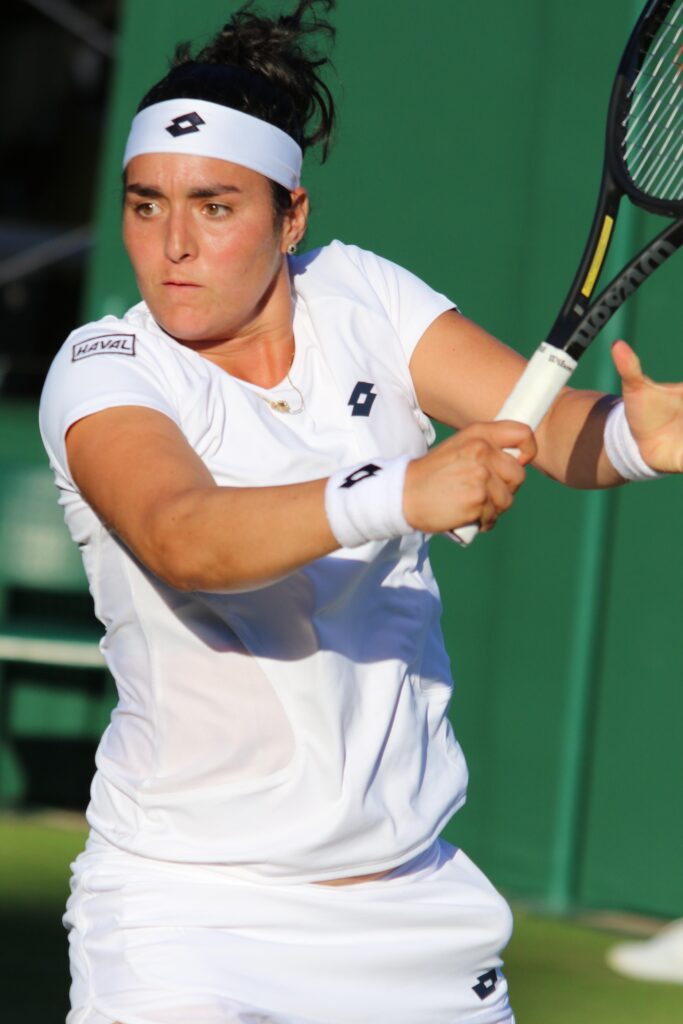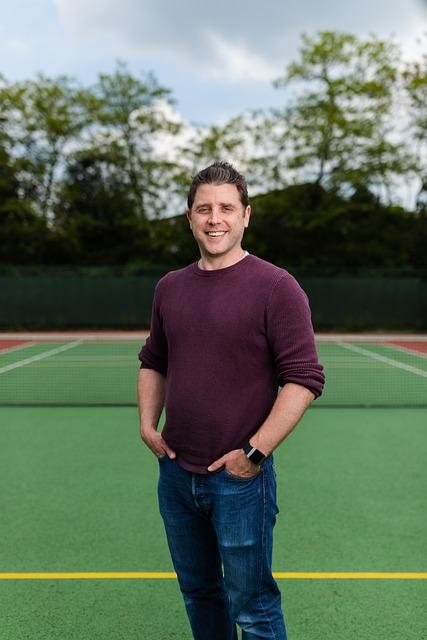JabeurŌüŻ Retires from Tennis ŌĆŗtoŌüŻ Focus on Personal Well-Being
In a surprising development that has Ōüósent shockwaves through the tennis world, former world No. ŌĆī2 Ons ŌüóJabeur has announced her retirement from professional tennis, citing herŌüŻ ongoing struggle with personal happiness as ŌüŻaŌĆī key reason for this decision. The Tunisian athlete, celebrated for her exceptional skills and groundbreaking milestones inŌüŻ the sport,ŌĆī shared her feelings during an emotional interview. DespiteŌĆŹ achieving notable success on the court, she ŌüżconfessedŌĆŗ thatŌüŻ she has not “truly felt happy” for quite some time. This revelation has left fans and fellow competitors in disbelief ŌĆŗand ŌĆīsparked important conversations about mental health within athletics.
Throughout recent Ōüóseasons, Jabeur emerged as a role model for many aspiringŌĆŗ players andŌĆŗ fans alike. She often spoke openly about the challenges of being at the top of her game,detailing how constantŌüŻ scrutiny ŌĆŗand high expectations have weighed heavily on her mental ŌĆīhealth. In light of thes pressures, she emphasized theŌĆŹ need to prioritize mental ŌüżwellnessŌĆī over competitive Ōüósuccess. Key takeaways ŌĆīfrom her announcement included:
- Mental Health Matters: Jabeur underscored theŌüó significance of mental well-being in sports.
- A Quest for Authenticity: She expressed a desire to reconnect with herself outside Ōüóof competitive pressures.
- A New Direction: Jabeur indicated plans to explore opportunities beyond tennis while focusing on personal growth and happiness.
| Year | Achievements |
|---|---|
| 2020 | Became a quarterfinalist at the Australian open. |
| 2021 | Secured ŌĆŹher first WTAŌĆŗ title in ŌüóBirminghamŌĆömaking history as the first Arab woman to doŌüŻ so. |
| 2022 | Broke barriers by becoming the first Arab woman to reach a GrandŌĆī Slam final at Wimbledon. |
JabeurŌĆÖs Message on Mental health: A Reflection for Athletes Facing Challenges
TheŌĆŗ departure of Ons Jabeur from professional tennis resonates profoundly within athletic circles. Her candid acknowledgment of struggling with happiness amid intense ŌüŻcompetition highlights an essential conversation regarding mentalŌĆŹ health among ŌĆŹathletes facingŌĆŹ similar crossroads in ŌüŻtheir careers. Many athletes encounter unforeseen obstacles that can affect both their performance ŌüżandŌĆŗ overall well-being when navigating pivotal moments like these. Jabeur’s message is clear: success ŌĆŹshould never come at the cost of ŌüŻone’s mental state; she encourages fellow competitors to prioritize emotionalŌüó wellness Ōüóabove all else. As she poignantly stated:
- “Life encompasses more than just victories or defeats.”
- “Pursuing happiness should be as vital as strivingŌĆī for success.”
- “ItŌĆÖs perfectly fine to take a step backŌĆöto reevaluate yoru Ōüópath ŌüŻand heal.”
This revelationŌĆŗ underscores ŌĆīan urgent need within sports culture: fostering environmentsŌüó where discussions Ōüóaround mentalŌĆī health are normalized and prioritized is Ōüócrucially important.
Jabeur’s ŌĆŹchoice Ōüżserves Ōüóas an impactful reminder that true greatness involves not only Ōüżaccolades but also personalŌüż fulfillment and psychological stability.
The stigma surrounding Ōüżmental health can deter athletes from seeking necessary support; thus it becomes ŌüŻimperative ŌüómovingŌĆī forward to create initiatives encouraging open dialog about experiencesŌĆŹ while cultivating ŌĆīunderstanding among ŌĆīpeers.
| Mental ŌĆŗWellness Strategies for Athletes |
|---|
| SeekŌĆī ProfessionalŌüŻ Guidance |
| Prioritize ŌĆŹSelf-Care Practices ŌĆŗ |
< /tbody > |
Understanding Burnout in Sports: Promoting Athlete Wellness ŌüóStrategies
the heartfeltŌĆī announcement made by Ons Jabeur regarding stepping away ŌüŻfrom professional tennis shines light upon an ŌĆīfrequently enough-overlooked issue prevalent among eliteŌĆŗ athletesŌĆöburnout.
Driven by relentless competition demands alongside ŌĆŗmedia scrutiny coupled with self-imposed expectations leads ŌüŻmanyŌüż players down paths fraught with emotional distress.
JabeursŌĆÖ experience Ōüżserves as critical evidence emphasizing awareness towards recognizing burnout ŌĆīsymptoms such as:
- Persistent Fatigue
- Diminished Passion Towards Sport
- Irritability & Anxiety Levels Rising
- Tangible Physical Symptoms (e.g., Ōüżinsomnia or digestive issues)
< /ul >
The evolving discourse surrounding athlete mental health necessitates prioritizing individual well-being above all else.
coaches must collaborate effectively creating ŌĆīsupportive atmospheres where open conversations regarding psychological states becomeŌĆī commonplace
Strategies aimed combating burnout may include:< br />- < b>Create Regular Mental check-ins ŌĆŹ li />
< li>Create ŌĆīOpportunities For BreaksŌĆŗ During Intense Training Periods
< li>Cultivate ŌĆŹBalanced Lifestyles Beyond AthleticŌüŻ Pursuits
< /ul >Additionally organizations ought develop workshops centered around resilience training along stressŌĆī management equippingŌüŻ players tools maintain optimal psychological states throughoutŌüż their careers.As Ons embarks upon this new chapter aheadŌüŻ ,her story remains poignant reminder reminding ŌüŻus all pursuing excellence shouldnŌĆÖtŌĆī overshadow our quest towards genuine Ōüójoy.
Looking Ahead: The Future Beyond Tennis For jabeur And Its Community Impact!
In what resonates deeply across various sectors withinŌüó sporting communities ŌĆīworldwide ,former World No Ōüó. 2 player ŌüŻ,Ons Jabuer chooses embark upon journey awayŌüż beloved sport due lack authentic fulfillment experienced throughoutŌĆī career .This ŌĆīremarkable talent known widely captivating audiences globally now stands poised redefine priorities focusing inner peace rather than external validation .
Her decision signifies monumental ŌüŻshift not solely impacting own life ŌĆībut also ŌĆŗshaping landscape professional athletics wherein emphasis placed increasingly importance addressing issues related wellbeing amongst performers .As we witness transition unfold before usŌĆŗ ,her legacy continues inspire countless individuals championing balance between ambition pursuit alongside nurturing ŌüżoneŌĆÖs own sense contentment .
On behalf grateful supporters everywhere wishing nothing less than tranquility fulfillment whatever endeavors await next!
- Diminished Passion Towards Sport






